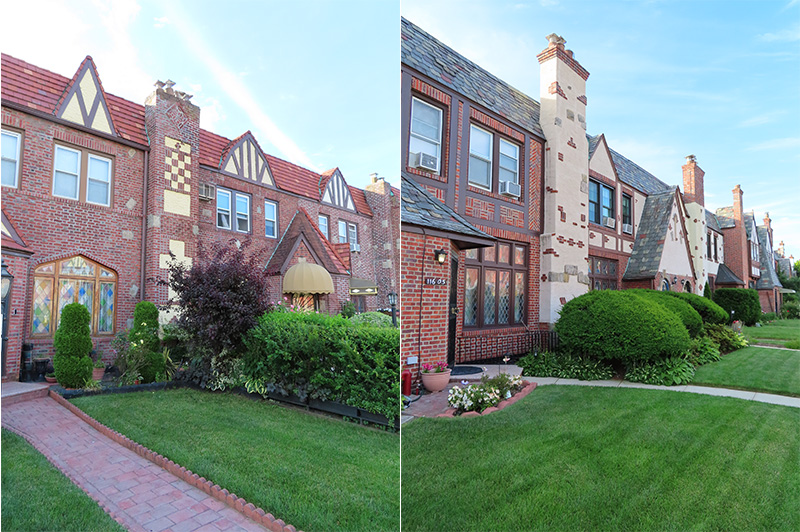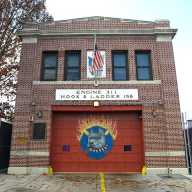The New York City Landmarks Preservation Commission (LPC) on June 28 designated two historic districts in Cambria Heights that are among the architectural highlights of the neighborhood and southeast Queens.
The Cambria Heights 222nd Street Historic District and Cambria Heights 227th Historic District were designated by the LPC for their storybook-style row houses incorporating Tudor-style elements.
Built in 1931, the districts contain remarkably intact rows of houses facing each other along two blocks in the Cambria Heights neighborhood. The Cambria Heights 222nd Street Historic District contains 46 row houses between 115th Road and 116th Avenue and the Cambria Heights 227th Street Historic District, five blocks away, contains 50 houses between 116th Avenue and Linden Boulevard.
“The designation of these two historic districts, the first in Cambria Heights, was a priority for me and fits within LPC’s equity framework, as we seek to increase designations in communities not well represented by landmarks, and to better tell the story of all New Yorkers,” said Sarah Carroll, chair of the Landmarks Preservation Commission. “A predominantly African American and Afro-Caribbean community, Cambria Heights had no designated landmarks or districts. Both the 222nd Street and 227th Street Historic Districts clearly stand out within their larger neighborhood for their striking architecture and their highly intact historic character.”
The storybook style is primarily associated with California, where it flourished as a small-house style in the 1920s and was influenced more by the fantasy architecture of fairytale illustrations and movie backdrops.
Storybook features of the 227th Street houses include half-timbering, diamond-pane windows and stucco with brick and stone accents, as well as whimsical red, blue and green slate shingles.
The 222nd Street houses feature Tudor-arched window openings, brightly colored terra-cotta roofs and windows, brick facades with random stone accents and whimsically decorated chimneys with patterned brick and stucco panels. The design of the row houses gives this street a “stage-set” quality consistent with the storybook style, appearing like a Hollywood backdrop or fairytale illustration come to life.
Initially, residents of both 222nd and 227th streets were white middle-class families. Black families began moving to Cambria Heights by the 1950s, often overcoming opposition, even overt hostility, from some white residents and real estate brokers.
By the 1980s, they were joined by immigrant families from Caribbean countries such as Jamaica, Haiti, Trinidad and Tobago, Guyana and Barbados.
Today, Cambria Heights remains one of several prosperous predominantly Black residential communities in southeast Queens.
Both districts are exceptionally well-preserved, retaining their characteristic stylistic features and continuous, landscaped front lawns, with a highly distinctive sense of place.
“For decades upon decades, the opportunity to own a home and build wealth was denied to Black families, immigrant families and other families of color in this country. By designating these historic districts, we are stating clearly that those opportunities must be available to everyone in our city and our country,” Mayor Eric Adams said. “These homes are significant not only because of their appearance but also because of what they represent to the communities who felt that in Cambria Heights and southeast Queens, the American Dream was within reach. This is what our city and my administration are about.”
According to Councilwoman Nantasha Williams, the project was started by her predecessor, former Councilman I. Daneek Miller.
“I am excited to see it come to fruition and have another neighborhood in my community designated as a historic district,” Williams said. “The 27th Council District is full of rich history and this neighborhood in Cambria Heights captures a unique architectural design not commonly found. I would like to thank and commend the Landmarks Preservation Commission for their work on increasing landmark designations in communities of color and their outreach on this project.”




































